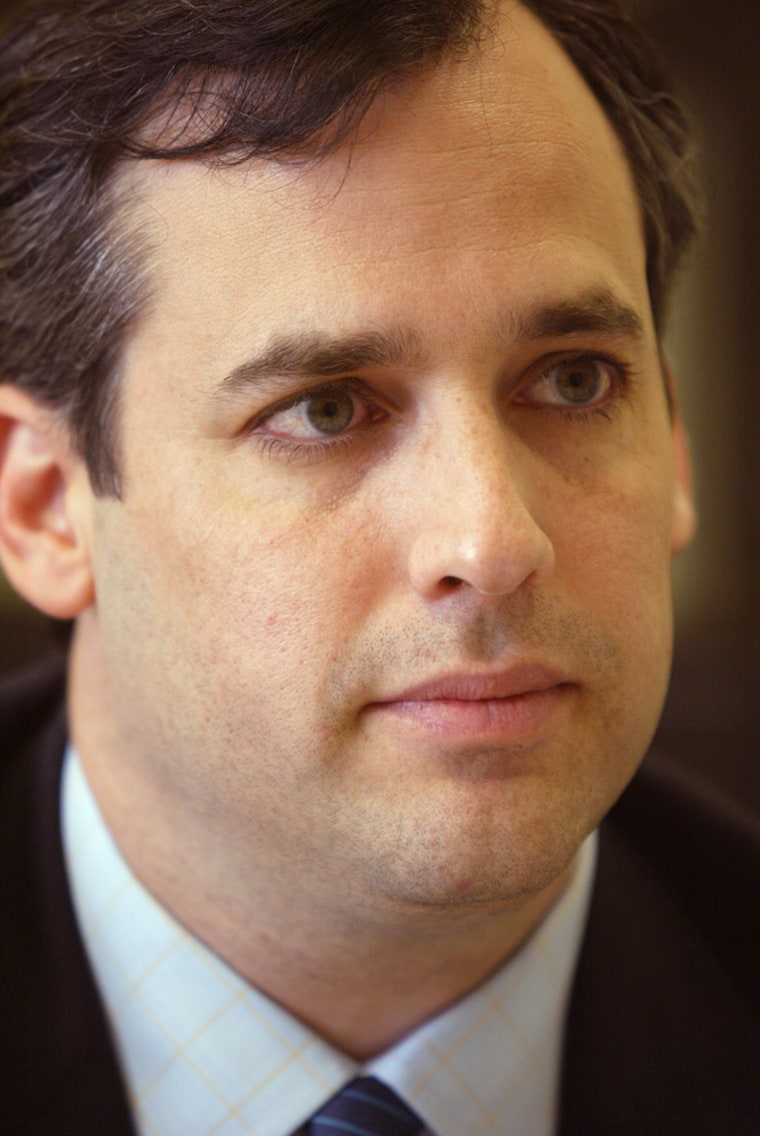Why would Democrats in Hawaii give money to a U.S. Senate candidate in Rhode Island?
That question is creating a furor around Rhode Island Secretary of State Matt Brown, who is running for the Senate. At issue is whether his campaign engaged in “donation swapping,” a practice experts say is a common and legally dubious means of skirting the federal limits on political contributions.
Late last year, Brown received $25,000 from the state Democratic parties in Hawaii, Maine and Massachusetts. Shortly afterward, four of his top donors gave $30,000 to those parties. The donors had already given Brown the maximum allowed under federal law, $4,200.
Critics accuse Brown’s campaign of laundering illegal donations, and on Wednesday, the Hawaii Republican Party signed a complaint asking the Federal Elections Commission to investigate.
Brown, who has been running on a clean-government platform, has said he did nothing illegal, but agreed to return the money because it created an “appearance problem.”
“This is a run-of-the mill campaign finance tactic,” said Nathaniel Persily, a University of Pennsylvania Law School professor who specializes in election laws.
Brown, Rhode Island’s top elections official, is one of two Democrats running for the seat held by Republican Sen. Lincoln Chafee. The race is considered one of the best chances for Democrats to pick up a seat in the Senate and has already become one of the most expensive in the nation; the four candidates have spent almost $3 million with the primary still six months away.
It is not unusual for candidates to receive money from out-of-state party organizations. But the donations from Hawaii, Maine and Massachusetts raised suspicions because Brown has not even won the Democratic nomination, and it is extremely unusual for party organizations to take sides in a primary.
Brown has said that late last year, his campaign field director contacted the other state parties, asked them to contribute and offered to help them raise money in return. Brown described the offer as a well-intentioned effort to help Democrats around the country.
The treasurer of the Hawaii Democratic Party, Jane Sugimura, told The Associated Press earlier this month that the party and the Brown campaign struck a deal in which the party gave money to Brown in exchange for money from Brown supporters. However, she later said there was no deal.
Specifically earmarking money for a specific candidate and funneling it through a third party to avoid the $4,200 limit is illegal under federal law, said Larry Noble, executive director of the nonpartisan Center for Responsive Politics and a former general counsel for the FEC.
However, proving there was such a deal can be difficult, Noble said.
'A fine line'
“There’s a fine line between it being just a suggestion that you’ll help fundraise and it becoming an earmarked contribution,” he said.
FEC spokesman George Smaragdis said he knows of no cases in the past five years in which state parties were fined for donation swapping.
All three state party organizations have since denied any wrongdoing, said there was no deal, and added that they did not even know that Brown had yet to win the nomination. Members of the Hawaii Democratic Party said that if there had been a deal, they would have received the donations before, not after, sending money to Brown.
The Maine Democratic Party’s executive director resigned Sunday — the same day the party adopted new rules to prevent leaders from making out-of-state contributions in the future.
Critics say the Brown campaign violated the spirit of the law even if no deal was made.
“It’s wrong, and they know it’s wrong, and they did it because they thought they could get away with it,” said Phil West, executive director of Common Cause of Rhode Island, a nonpartisan watchdog group.
Fundraisers and political scientists say plenty of other campaigns do it as well.
“The fundraising that happens here, happens around the country,” said Rick McAuliffe, a Rhode Island Democrat who raised money for John Kerry’s 2002 presidential bid.
